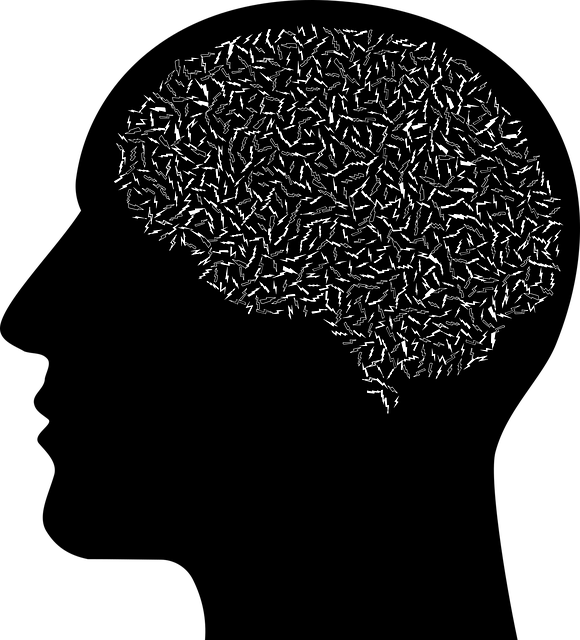Mental Health Crisis Hotlines provide 24/7 support using evidence-based therapies like Littleton Cognitive Processing Therapy (LCPT) to address trauma, anxiety, and depression. Trained professionals guide individuals through crisis intervention, cognitive restructuring, and self-care routines, empowering them to navigate challenges effectively. Hotline services also aid healthcare provider burnout prevention and mental well-being promotion, fostering resilience and long-term wellness networks. By expressing preferences for specific therapies like LCPT, individuals can receive tailored guidance for their unique crises.
In today’s fast-paced world, mental health crisis hotline support services play a pivotal role in empowering individuals facing acute distress. This article explores essential aspects of these lifeline resources, delving into understanding mental health crises and the effectiveness of therapies like Littleton Cognitive Processing Therapy (LCPT). We guide you through accessing these services, building a personal network for long-term wellbeing, and emphasizing the transformative power of professional support.
- Understanding Mental Health Crisis Hotlines
- The Role of Littleton Cognitive Processing Therapy
- Accessing and Utilizing Support Services
- Building a Network for Long-Term Wellbeing
Understanding Mental Health Crisis Hotlines

Mental Health Crisis Hotlines serve as vital safety nets, offering immediate support and guidance to individuals experiencing acute emotional distress or a mental health crisis. These 24/7 services are designed to provide a sense of security and stability during times of intense turmoil. Trained professionals answer calls, offer active listening, and deliver evidence-based interventions tailored to each individual’s needs. One such evidence-based approach is Littleton Cognitive Processing Therapy (LCPT), which focuses on identifying and modifying negative thought patterns contributing to anxiety or depression.
Beyond addressing immediate crises, these hotlines also play a crucial role in trauma support services, burnout prevention strategies for healthcare providers, and promoting overall mental well-being. By providing quick access to expert assistance, they empower individuals to navigate their challenges more effectively, fostering resilience and coping mechanisms that can prevent future exacerbations of depression or other psychiatric disorders.
The Role of Littleton Cognitive Processing Therapy

Littleton Cognitive Processing Therapy (LCPT) plays a pivotal role in addressing mental health crises by focusing on cognitive restructuring and behavioral changes. This therapeutic approach aims to help individuals challenge and reframe negative thought patterns, thereby improving their emotional well-being. By integrating evidence-based techniques, LCPT facilitates self-esteem improvement and encourages the development of a robust self-care routine for better mental health.
In the context of a crisis hotline, trained therapists utilizing LCPT can provide immediate support, guiding callers through stressful situations. This therapy empowers them to adopt healthier coping mechanisms, fostering resilience against future mental health challenges. Moreover, advocacy efforts centered around mental health policy analysis and advocacy complement LCPT by ensuring systemic changes that promote accessible and effective mental healthcare services for all.
Accessing and Utilizing Support Services

Accessing support services for mental health crises is a crucial step toward recovery and well-being. Hotline services offer immediate assistance and guidance, connecting individuals with the right resources and professionals. These hotlines are typically accessible 24/7, ensuring help is readily available during times of distress. When calling, individuals can expect trained counselors who provide active listening and support tailored to their unique situations. The conversations are confidential, fostering a safe space for honest expression.
Utilizing these services effectively involves being clear and concise about one’s situation. Describing the crisis, current feelings, and any relevant history helps the counselor understand the need. For those seeking specific therapies like Littleton Cognitive Processing Therapy (LCPT), it’s beneficial to mention this preference. LCPT, known for its effectiveness in addressing trauma and anxiety, can be a requested option when exploring treatment options. Moreover, mental health awareness campaigns and coaching programs focused on development and empathy-building strategies further enhance access to comprehensive support.
Building a Network for Long-Term Wellbeing

In addressing mental health crises, a comprehensive approach involves not just immediate support but also building networks for long-term wellbeing. This includes integrating therapeutic practices like Littleton Cognitive Processing Therapy (LCPT) to address underlying emotional and cognitive issues. By fostering emotional intelligence and inner strength development through LCPT, individuals gain coping skills that are essential for navigating future challenges.
The focus on these skills not only helps in managing acute crises but also empowers individuals to proactively address stress, anxiety, or depression over time. This holistic approach ensures that support services extend beyond immediate interventions, contributing to a more sustainable and resilient mental health landscape.
Mental health crisis hotlines serve as vital resources, offering immediate support and guidance during challenging times. As discussed, Littleton Cognitive Processing Therapy (LCPT) is an effective approach within the broader spectrum of available services. Accessing these hotlines and building a network of long-term support can significantly enhance overall wellbeing. Remember that seeking help is a sign of strength, and with the right resources, individuals can navigate through crises and foster lasting mental resilience.














